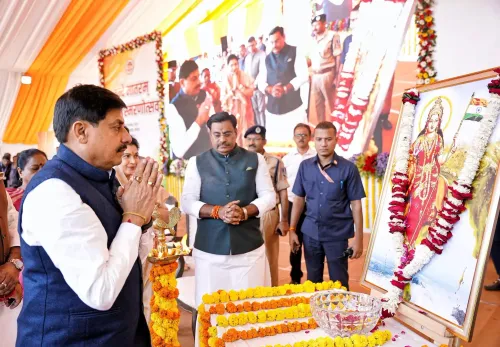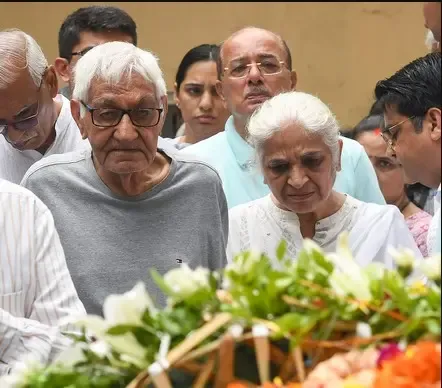Is a Bangladeshi National Living Illegally in India Arrested After 16 Years in Canning?

Synopsis
Key Takeaways
- Bangladeshi national arrested in India after 16 years.
- Possessed dual voter identity cards.
- Ongoing investigation into illegal immigration networks.
- Concerns raised regarding border security.
- Political implications due to the BJP's accusations.
Kolkata, July 30 (NationPress) - On Wednesday, the West Bengal Police apprehended a Bangladeshi national in Canning, located in the South 24 Parganas district, who had been residing in India for an astounding 16 years, as confirmed by police officials.
The individual, identified as Akbar Ali Mollah, possessed electoral identification cards from both Bangladesh and India.
Authorities reported that Akbar had made his home in Madhukhali Bhandaripara under the Itkhola Gram Panchayat of the Canning police station for the past 16 years.
Police acted on a tip-off, leading officers from the Canning police station to his residence late Tuesday night.
Following an extensive questioning session that lasted through the night, Akbar was arrested on Wednesday morning.
According to a district police official, "A Bangladeshi voter card was seized from the detained individual, which identified him as Mohammad Akbar Ali Ghazi. However, in India, he was known as Akbar Ali Mollah. He will appear in a district court today, where we will request custody for further investigation."
During the interrogation, Akbar claimed that his "true home" is in Satkhira, Bangladesh.
The police are currently investigating how Akbar entered India, acquired an Indian identity card, and managed to get his name on the voters' list.
Efforts are underway to gather more information from Akbar regarding these matters.
Additionally, law enforcement has stated that strict actions will be taken against anyone involved in facilitating infiltration or providing shelter to infiltrators in Bengal.
Investigations are also ongoing to determine if there is an 'agent cycle' that assists illegal Bangladeshi entrants in obtaining fake Indian identity documents.
This arrest is particularly significant as the BJP has been accusing the Mamata Banerjee government in West Bengal of harboring infiltrators, including Bangladeshi Muslims and Rohingyas.
Last month, the West Bengal Chief Electoral Officer's Office announced that a thorough investigation led to the removal of Newton Das, a youth involved in the student movement in Bangladesh last year, from the voters' list in the Kakdwip Assembly constituency in South 24 Parganas.








